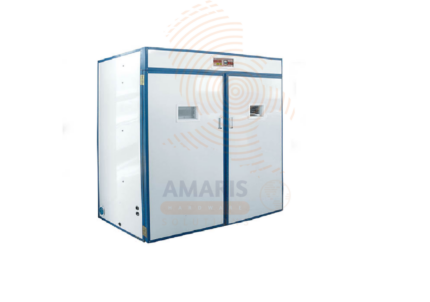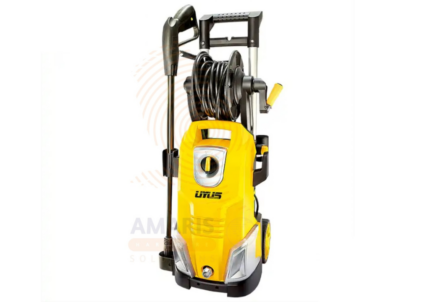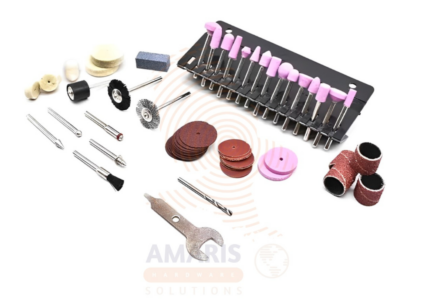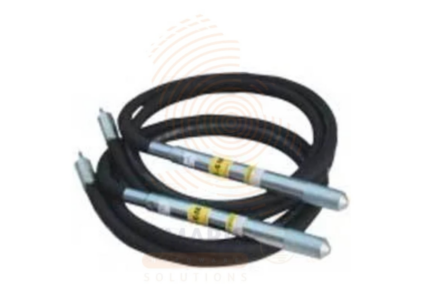
Step Drill Set -- Metric
$43.69 Original price was: $43.69.$41.51Current price is: $41.51.

Stone Separator
$780.77 Original price was: $780.77.$741.73Current price is: $741.73.
Stone Crusher
$665.38 Original price was: $665.38.$632.11Current price is: $632.11.
WhatsApp Order
A stone crusher is a heavy-duty machine designed to reduce large rocks into smaller stones, gravel, or rock dust for use in construction, road building, and other aggregate applications. These machines use mechanical force to break down stone material, typically through compression or impact. Stone crushers come in various types such as jaw crushers, cone crushers, impact crushers, and hammer crushers, each suited to specific crushing requirements. They are widely used in mining, quarrying, construction, and recycling industries to produce consistent aggregate sizes for foundations, concrete, asphalt, and more.
Description
Table of Contents
ToggleStone Crusher
Uses
-
Construction Aggregate Production
o Crushes stones into gravel, sand, and other sizes used in concrete and asphalt.
o Provides material for road bases, buildings, and bridges. -
Mining and Quarrying
o Extracts and processes minerals by breaking ore-bearing rocks.
o Separates valuable materials for further refining. -
Road Construction
o Produces crushed stone for use in asphalt and concrete road surfaces.
o Provides base material for stable and long-lasting roads. -
Demolition Waste Recycling
o Crushes concrete and masonry debris into reusable aggregate.
o Reduces landfill waste and promotes material reuse. -
Foundation Preparation
o Provides crushed rock for compacted foundation layers.
o Ensures load-bearing strength in building sites. -
Railroad Ballast Production
o Produces angular crushed stone for stable railway track beds.
o Improves drainage and track stability. -
Cement and Concrete Manufacturing
o Supplies finely crushed limestone and other materials for cement blending.
o Ensures consistent mix quality in ready-mix concrete production. -
Landscaping
o Creates decorative crushed stone for paths, driveways, and gardens.
o Enhances drainage and aesthetic appeal in outdoor projects. -
Industrial Processing
o Prepares raw materials for chemical, glass, or metallurgical processes.
o Ensures uniform particle sizes for downstream applications.
SAFETY HANDLING PRECAUTIONS
Safety Precautions
-
Wear Full Protective Gear
o Use helmets, gloves, safety glasses, and dust masks to protect against dust, flying debris, and noise. -
Regular Equipment Inspection
o Check wear parts, belts, and motors regularly to avoid breakdowns. -
Ensure Proper Machine Guarding
o Keep all guards in place to prevent contact with moving parts. -
Operate by Trained Personnel Only
o Avoid unauthorized use to minimize accidents and equipment damage. -
Dust Control Measures
o Use water spray or dust extraction systems to reduce airborne particles. -
Maintain Safe Distance
o Keep operators and bystanders at a safe distance during operation. -
Emergency Stop Protocols
o Know the emergency shut-off procedures and locations. -
Avoid Overloading
o Feed material according to machine capacity to prevent clogging or damage. -
Use Hearing Protection
o Protect against prolonged exposure to high noise levels.
Related products
Egg Incubator
An egg incubator is a specialized device designed to artificially hatch eggs by maintaining optimal temperature, humidity, and ventilation conditions. This equipment simulates the natural environment provided by brooding birds, ensuring consistent warmth and air circulation to promote healthy embryo development. Egg incubators are widely used in poultry farming, hatcheries, research, and educational settings to increase hatch rates, control breeding cycles, and improve the efficiency of egg hatching processes.
Hammer Mill
A Hammer Mill is an industrial grinding machine used to crush, pulverize, shred, and reduce the size of various materials such as grains, biomass, minerals, and agricultural products. It operates by rotating hammers attached to a spinning rotor that strike the material, breaking it down into smaller pieces which pass through a screen for size control. Hammer Mills are widely used in feed production, biomass processing, recycling, and mineral processing due to their efficiency and versatility. They come in various sizes and configurations, suitable for fine to coarse grinding and are essential in agriculture, manufacturing, and energy industries.
Hand Pump
A hand pump is a manually operated device designed to draw or move fluids, typically liquids, from one place to another by using human force. It usually consists of a handle or lever that is manually operated to create suction or pressure, enabling the pumping action to transfer the fluid through a system of valves and pipes. Hand pumps are commonly used for various applications, such as extracting water from wells, transferring liquids between containers, or dispensing fluids in a controlled manner.
High Pressure Hose
A High Pressure Hose is a flexible and reinforced conduit designed to transport fluids, such as water, oil, or gas, under elevated pressure levels. Typically constructed with durable materials, such as synthetic rubber or thermoplastic compounds, high-pressure hoses are engineered to withstand and contain the force exerted by the fluid they convey. These hoses are commonly used in various industrial, automotive, and hydraulic applications where the need for efficient and secure fluid transfer at elevated pressures is paramount.
Induction Motor Brushless Pressure Washer
The Induction Motor Brushless Pressure Washer is a high-performance cleaning tool designed for demanding tasks in both residential and industrial environments. Powered by a durable brushless induction motor, it delivers consistent, high-pressure water output for effective removal of dirt, grime, and stains on vehicles, driveways, machinery, and outdoor surfaces. Its brushless technology ensures quieter operation, longer motor life, and improved energy efficiency. Built with rugged components and ergonomic features, this pressure washer is ideal for users who require power, reliability, and low maintenance.
Mini Die Polisher Kit
A MINI DIE POLISHER KIT," it could potentially be a set of 80 pieces of miniature tools and accessories designed for polishing or finishing small objects, such as jewelry, metalwork, or other intricate items.
In such a kit, you might expect to find a variety of mini die polishers, polishing compounds, abrasive tools, and other accessories that cater to detailed and precise polishing tasks. The specific contents could include items like mini polishing wheels, buffs, abrasive discs, polishing compounds, and various attachments suitable for use in a smaller-scale polishing environment.
Oil Pot
Poker vibrator shaft
A poker vibrator shaft, also known as a concrete vibrator shaft or simply a vibrator shaft, is a tool used in construction and concrete work. It consists of a long, slender, and flexible rod or shaft, typically made of steel, with an eccentrically mounted vibrator head at one end. The vibrator head contains an electric or pneumatic motor that generates vibrations.
The primary purpose of a poker vibrator shaft is to consolidate and remove air pockets or bubbles within freshly poured concrete. When the vibrator head is immersed in the concrete mix, the vibrations it generates help to ensure uniform distribution of the concrete, enhance its density, and eliminate voids. This process, known as concrete consolidation, improves the strength and durability of the concrete structure.


 Acrylic Sealants
Acrylic Sealants Construction Adhesives
Construction Adhesives Double-Sided Tape
Double-Sided Tape Duct Tape
Duct Tape Electrical Tape
Electrical Tape Epoxy & Resins
Epoxy & Resins Masking Tape
Masking Tape
 Automotive Wrenches & Socket Sets
Automotive Wrenches & Socket Sets Battery Chargers & Jump Starters
Battery Chargers & Jump Starters Car Jacks & Stands
Car Jacks & Stands Car Wash & Detailing Products
Car Wash & Detailing Products Diagnostic Tools
Diagnostic Tools Tire Inflators
Tire Inflators Vehicle Lighting
Vehicle Lighting Oil & Lubricants
Oil & Lubricants
 Adhesives & Sealants
Adhesives & Sealants Bricks & Blocks
Bricks & Blocks Cement & Concrete
Cement & Concrete Drywall & Plaster
Drywall & Plaster Flooring (Tiles, Wood, Laminate)
Flooring (Tiles, Wood, Laminate) Lumber & Plywood
Lumber & Plywood Paints, Primers & Coatings
Paints, Primers & Coatings Insulation Materials
Insulation Materials Roofing Materials
Roofing Materials
 Circuit Breakers
Circuit Breakers Electrical Cables & Wires
Electrical Cables & Wires Switches & Sockets
Switches & Sockets Fuses & Relays
Fuses & Relays Connectors & Terminals
Connectors & Terminals Electrical Boxes & Panels
Electrical Boxes & Panels Conduit & Fittings
Conduit & Fittings Lighting Fixtures & Bulbs
Lighting Fixtures & Bulbs Extension Cords & Power Strips
Extension Cords & Power Strips
 Anchors
Anchors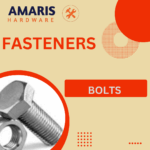 Bolts
Bolts Clips & Clamps
Clips & Clamps Screws
Screws Nuts
Nuts Washers
Washers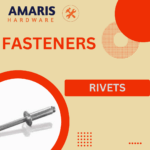 Rivets
Rivets Nails
Nails Threaded Rods
Threaded Rods
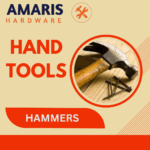 Hammers
Hammers Measuring Tools (Tapes, Levels, Calipers)
Measuring Tools (Tapes, Levels, Calipers) Screwdrivers
Screwdrivers Pliers & Cutters
Pliers & Cutters Saws & Blades
Saws & Blades Chisels & Punches
Chisels & Punches Allen Keys & Hex Keys
Allen Keys & Hex Keys Ratchets & Socket Sets
Ratchets & Socket Sets Wrenches & Spanners
Wrenches & Spanners
 Power Tool Accessories (Blades, Bits, Discs)
Power Tool Accessories (Blades, Bits, Discs)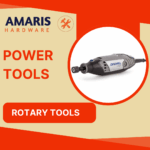 Rotary Tools
Rotary Tools Saws (Circular, Jigsaw, Reciprocating)
Saws (Circular, Jigsaw, Reciprocating) Drills & Drivers
Drills & Drivers Grinders & Sanders
Grinders & Sanders Heat Guns
Heat Guns Nail Guns
Nail Guns Impact Wrenches
Impact Wrenches Batteries & Chargers
Batteries & Chargers
 Pipes & Fittings (PVC, Copper, PEX)
Pipes & Fittings (PVC, Copper, PEX) Plumbing Tools
Plumbing Tools Pumps & Motors
Pumps & Motors Sealants & Adhesives for Plumbing
Sealants & Adhesives for Plumbing Valves & Taps
Valves & Taps Water Heaters
Water Heaters Drainage Systems
Drainage Systems Faucets & Fixtures
Faucets & Fixtures Hoses & Tubing
Hoses & Tubing
 Hinges & Latches
Hinges & Latches Hooks & Brackets
Hooks & Brackets Window Hardware
Window Hardware Chains & Cables
Chains & Cables Casters & Wheels
Casters & Wheels Shelving & Storage Systems
Shelving & Storage Systems Door Handles & Locks
Door Handles & Locks Drawer Slides & Cabinet Hardware
Drawer Slides & Cabinet Hardware
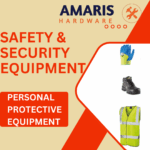 Personal Protective Equipment (PPE)
Personal Protective Equipment (PPE)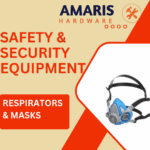 Respirators & Masks
Respirators & Masks Safety Glasses
Safety Glasses Safes
Safes Security Cameras
Security Cameras Gloves
Gloves Helmets
Helmets Ear Protection
Ear Protection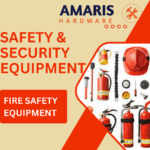 Fire Safety Equipment
Fire Safety Equipment Locks & Padlocks
Locks & Padlocks Motion Sensors & Alarms
Motion Sensors & Alarms
 Garden Fencing
Garden Fencing Garden Furniture Hardware
Garden Furniture Hardware Lawn Mowers
Lawn Mowers Trimmers & Edgers
Trimmers & Edgers Shovels & Spades
Shovels & Spades Rakes & Hoes
Rakes & Hoes Pruning Shears & Loppers
Pruning Shears & Loppers Watering Systems (Hoses, Sprinklers, Nozzles)
Watering Systems (Hoses, Sprinklers, Nozzles)
 Interior Paints
Interior Paints Paint Brushes & Rollers
Paint Brushes & Rollers Paint Strippers & Thinners
Paint Strippers & Thinners Paint Trays & Accessories
Paint Trays & Accessories Exterior Paints
Exterior Paints Spray Paints
Spray Paints Primers & Undercoats
Primers & Undercoats Varnishes & Stains
Varnishes & Stains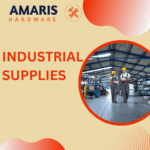
 Gaskets & Seals
Gaskets & Seals Hydraulic Fittings
Hydraulic Fittings Industrial Fasteners
Industrial Fasteners Industrial Hoses
Industrial Hoses Lubricants & Greases
Lubricants & Greases Metal Sheets & Bars
Metal Sheets & Bars Bearings & Bushings
Bearings & Bushings Belts & Pulleys
Belts & Pulleys
 HVAC Filters
HVAC Filters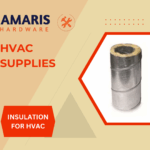 Insulation for HVAC
Insulation for HVAC Air Conditioners
Air Conditioners Refrigerants
Refrigerants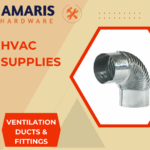 Ventilation Ducts & Fittings
Ventilation Ducts & Fittings Thermostats & Controllers
Thermostats & Controllers Fans & Blowers
Fans & Blowers
 Pegboards & Hooks
Pegboards & Hooks Shelving Units
Shelving Units Storage Bins & Containers
Storage Bins & Containers Toolboxes & Tool Chests
Toolboxes & Tool Chests Workbenches
Workbenches Drawer Organizers
Drawer Organizers Labeling Supplies
Labeling Supplies
 Welding Accessories (Clamps, Brushes)
Welding Accessories (Clamps, Brushes) Welding Electrodes & Rods
Welding Electrodes & Rods Welding Helmets & Gloves
Welding Helmets & Gloves Welding Machines
Welding Machines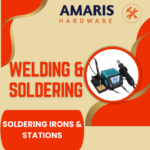 Soldering Irons & Stations
Soldering Irons & Stations Flux & Solder Wire
Flux & Solder Wire
 Generator Accessories
Generator Accessories Inverters
Inverters Portable Generators
Portable Generators Power Inverters
Power Inverters Transfer Switches
Transfer Switches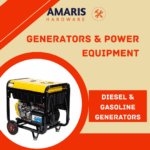 Diesel & Gasoline Generators
Diesel & Gasoline Generators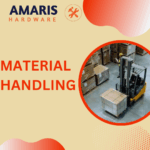
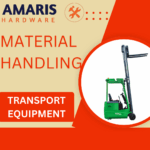 Transport Equipment: Carts, Dollies, and Hand Trucks
Transport Equipment: Carts, Dollies, and Hand Trucks Storage Solutions: Pallets, Racks, and Containers
Storage Solutions: Pallets, Racks, and Containers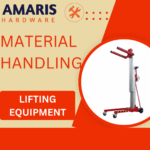 Lifting Equipment: Hoists, Cranes, and Jacks
Lifting Equipment: Hoists, Cranes, and Jacks Conveyors & Accessories: Belts & Rollers
Conveyors & Accessories: Belts & Rollers
 Office Chairs
Office Chairs
